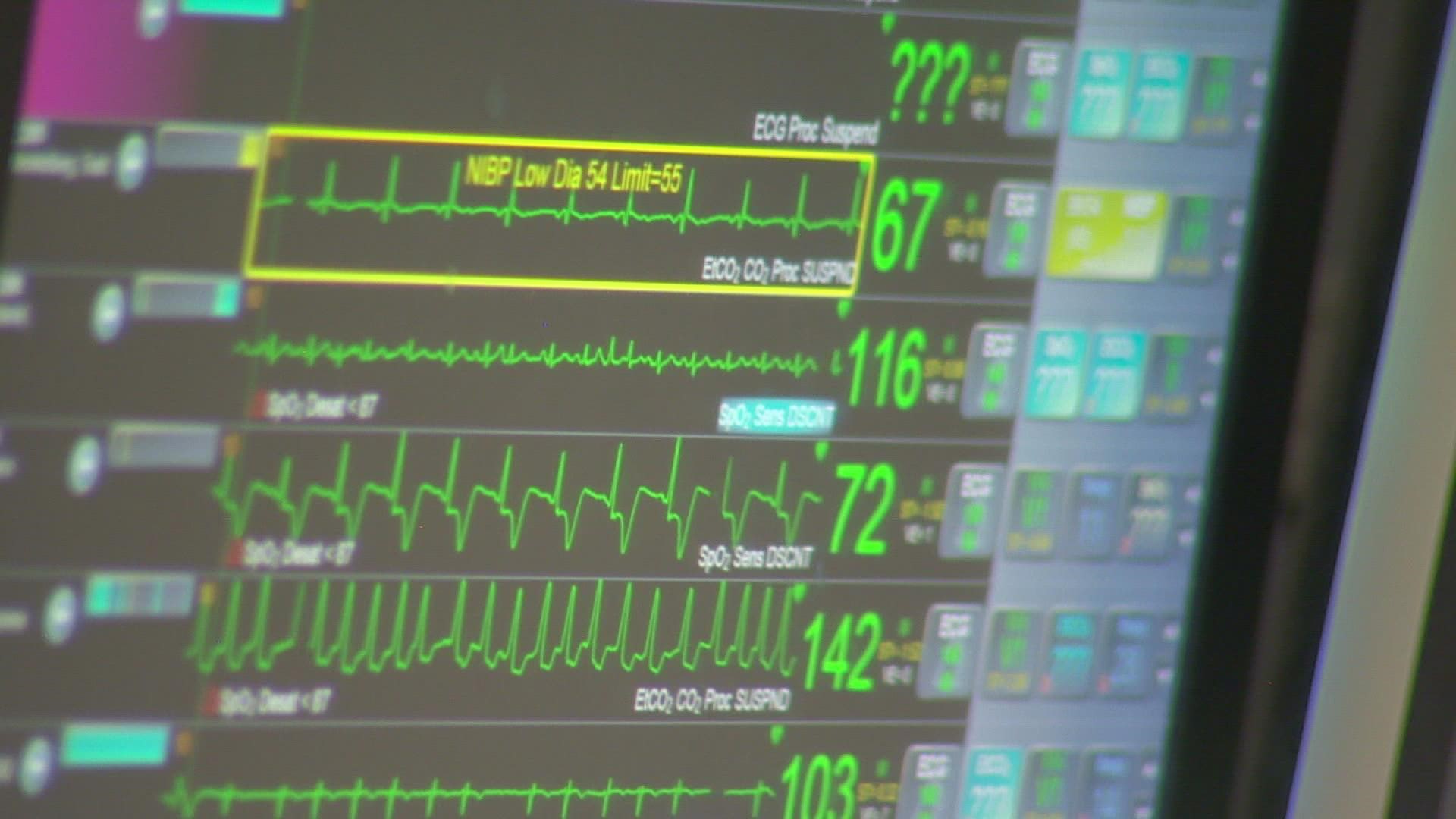SEATTLE — Despite early reports that the new omicron variant of COVID-19 is less severe than previous variants, Washington state health officials continue to sound the alarm.
As Washington State Hospital Association (WSHA) Executive Vice President Taya Briley explained Thursday, the state and the rest of the country are faced with “a math problem” due to the apparent high transmissibility of the new variant.
“Even if most people don’t get really sick, there are a lot of people who are getting infected with omicron, and some portion of them will get severely ill and need hospital care. Even if it's a small portion of the overall total, this could mean a huge number of people getting sick enough to need hospitalization,” Briley said during a WSHA briefing.
The message is in response to early reports from places like South Africa and the United Kingdom that show hospitalizations not spiking to the same degree as case counts.
The University of Washington’s Institute for Health Metrics and Evaluation issued new predictions Wednesday that showed, while there could be 3.2 billion new COVID-19 infections globally in the next three months, hospital levels will likely not surpass those seen last winter.
Washington state, for example, hit a 7-day average peak of about 120 daily COVID-19 hospitalizations in December 2020. As of mid-December this year, the 7-day average for daily hospitalizations is in the mid-60s.
Still, Mark Taylor with the Washington Medical Coordination Center, which helps hospitals transfer patients within the state to ease capacity issues, said that hospitals in the state couldn’t currently support another surge.
“Although we've heard, certainly been reported within the media, that this new variant does not seem to be providing as serious an impact to patients, I personally don't believe that we really can afford to have much impact at all, capacity is extremely high right now,” Taylor explained.
Despite statewide hospital levels remaining on average below 100%, some acute care and specialty care facilities are running above 100% capacity.
“We really do not currently have the capacity within our facilities to accommodate a large surge as we just came through with the delta surge,” Taylor said.
Meanwhile, COVID-19 numbers in hospitals currently are quite positive, according to Briley. Health facilities are really facing capacity issues mostly due to the difficulty in discharging patients who no longer need hospital care.
“Remarkably, our COVID-19 numbers, with the exception of a couple of areas (and Pierce County is one), are down. Our COVID-19 numbers actually look excellent compared to many other parts of the country,” Briley explained, who added that the current hospital census is as if the state were already in the middle of another COVID-19 surge.
Beyond patients with COVID-19 and those whose delayed care has become emergent, high hospital capacity across the state is being caused mainly by three things.
One is the difficulty in finding a long-term care facility, which has been exacerbated by staffing shortages. Two, the state’s long assessment wait period to find out if a patient can be discharged to a long-term care facility creates a bottleneck within hospitals. Third, the fact that the state legally requires a cognitively impaired person to have a legal guardian sign off on their discharge creates a time-consuming and court-intensive process that can take months to complete.
To solve these issues, WSHA hopes the state can increase payments for long-term care facility staff, increase staff in charge of conducting long-term care assessments and change the law so that it does not require a legal guardian to discharge patients who cannot be held responsible for their own medical decisions. Briley said the guardianship issue could be solved through an emergency order from Gov. Jay Inslee.
“The governor could potentially act using his emergency powers right now, but the legislative session also is not far away,” Briley said. “So, either option sounds really great to us, we just want to see action as soon as possible on this measure. Right now, that is a piece that doesn't make a whole lot of sense to us and is preventing patients from moving out.”

